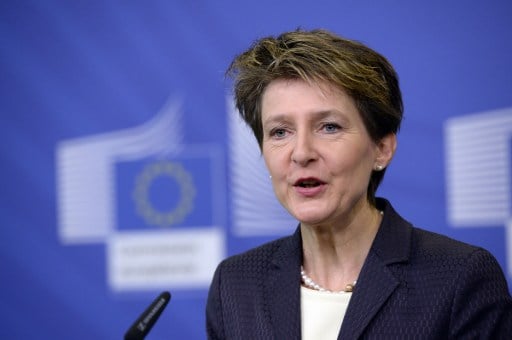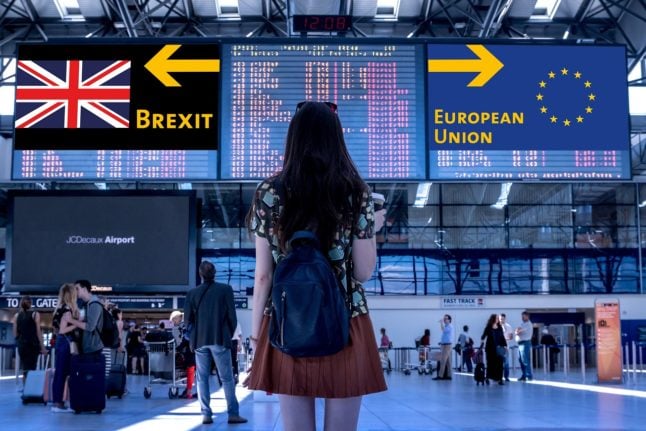TERRORISM
‘Without Schengen we would be less protected from terror’
Justice minister Simonetta Sommaruga has said Switzerland’s membership of Schengen is vital in the fight against international terrorism and that those who seek to end the Schengen agreement are “irresponsible”.
Published: 24 March 2017 10:09 CET

Photo: Thierry Charlier/AFP
Sommaruga was speaking in an interview with Blick following the terror attack outside the Houses of Parliament in London on Wednesday.
Five people including the attacker were killed when a British man mowed down pedestrians on Westminster bridge before stabbing a police officer outside the Houses of Parliament.
Though Switzerland is not in the European Union, since 2008 it has been a member of the Schengen zone, which allows people to move freely between its 26 member countries without a passport.
Schengen has come under fire since the beginning of the migrant crisis, with critics saying it has opened the door to waves of migrants and also allows terrorists and other criminals to move too easily around the zone.
However Sommaruga told Blick the “key benefit” of Schengen is police cooperation, allowing national police services to easily and quickly check if a suspect is on the radar of authorities in another Schengen country.
“Without Schengen we would be less protected from terror. We would not get any important information,” she said, adding that those who seek to terminate the agreement are “irresponsible”.
Britain is not a member of Schengen but does take part in the agreement’s information-sharing system.
The minister said she was shocked by the attack in London and that such events could also happen in Switzerland, which is why international collaboration is vital.
“No one can manage their own security alone,” she said.
Even with such cooperation it is impossible to guarantee security in face of “low-cost” terror acts such as the one in London, she told the paper.
“Any individual can do a lot of damage with little effort.”
Consequently, it is important for the public to assist the authorities by reporting suspected cases of radicalization, she said.
“Radicalization often happens slowly, people change little by little,” she said. “The authorities are dependent on teachers, parents, friends to be attentive and, if necessary, to seek advice and assistance from local authorities”.
Switzerland should even look to make reporting suspected radicalized people an obligation, she added, though recognized that you cannot punish someone for a crime they haven’t yet committed.
However in 2014 Switzerland imposed a ban on Islamic State (Isis), meaning it is a crime to support the terror group in any way, for example by posting online propaganda or trying to recruit new members.
Currently around 500 people in Switzerland are “on the radar” of the authorities for showing sympathy to Isis online, and around 60 are facing criminal proceedings, said Sommaruga.
“The number of truly dangerous people is somewhere between those two figures.”
Url copied to clipboard!


 Please whitelist us to continue reading.
Please whitelist us to continue reading.
Member comments